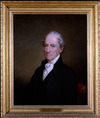The Fenians and the Secret Police
The Canadian secret police had been founded during the American Civil War to prevent Southern confederates from using Canada as a base to attack the North. After the war ended in 1865, the force was being wound down. With the arrival of reports that the Fenians were planning to invade Canada, the process was reversed and the force was expanded. Under the leadership of Frederick William ERMATINGER in Lower Canada, and Gilbert McMICKEN in Upper Canada, both of whom reported to John A. MACDONALD, it set out to penetrate the Fenian Brotherhood. From the biography of McMicken:
“Where it was achieved, [the infiltration of Fenian ranks] brought more alarming information, forcing McMicken and Macdonald to analyse the material and separate wishful Fenian thinking from real plans. McMicken himself paid an undercover visit to a major Fenian congress in Philadelphia. When he discovered that a 15-man ‘Senate’ would work out details of an intended November [1865] invasion in secret, he proposed and set out to obtain ‘one or two clever women whose absolute virtue stands questioned by the censorious’ to get ‘susceptible members of the “senate” into their toils and thus as Delilah with Sampson possess themselves of their secrets.’”
Although the secret police force was caught unawares by the Fenian invasion of the Niagara peninsula in June 1866, its intelligence operations became much more effective afterwards. One of its key agents was Thomas Billis BEACH, whose pseudonym was Henri Le Caron:
“Le Caron was able to penetrate into the inner circles of Fenian leadership. Abandoning his medical studies and a post he had taken up in Illinois, he took the Fenian oath, becoming a head centre (an executive position) and a military organizer, later rising to the rank of colonel …. In the spring of 1868 Le Caron met with Canadian police commissioner Gilbert McMICKEN and made arrangements to transmit information to him on a regular basis. He spoke to McMicken again near the frontier in February 1870 and warned him that a Fenian raid on Canada was impending. The Canadian government was therefore prepared when O’Neill attacked at Eccles-Hill, near Frelighsburg, Que., on 25 May. Le Caron, who was in charge of Fenian munitions during the raid, did what he could to create havoc in the Fenian ranks….
“Le Caron’s report of the raid marked the high point in his career as a secret agent. The following year, 1871, he warned the Canadian government of the plans of William Bernard
To learn more about the infiltration of the Fenians, please consult the following biographies:





